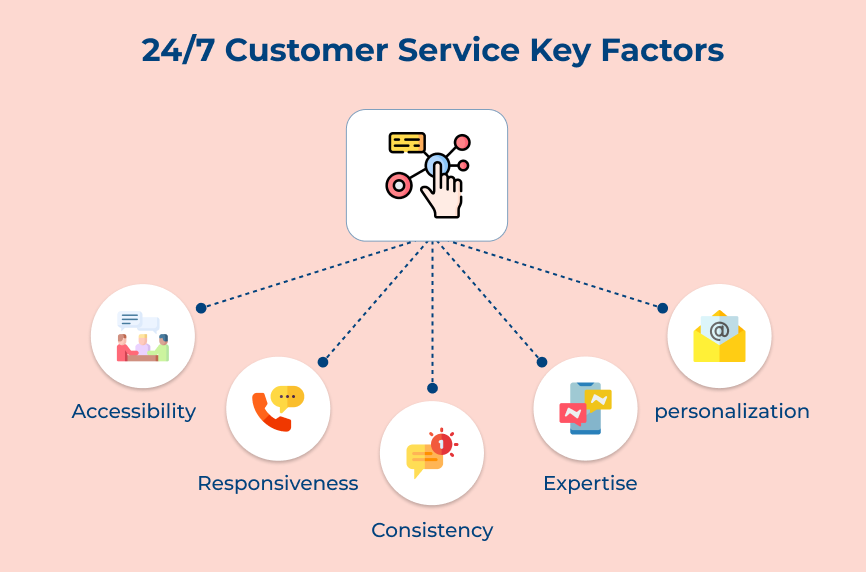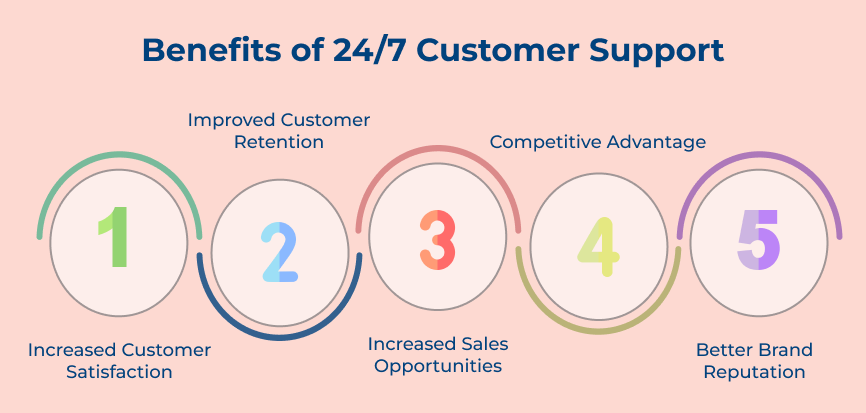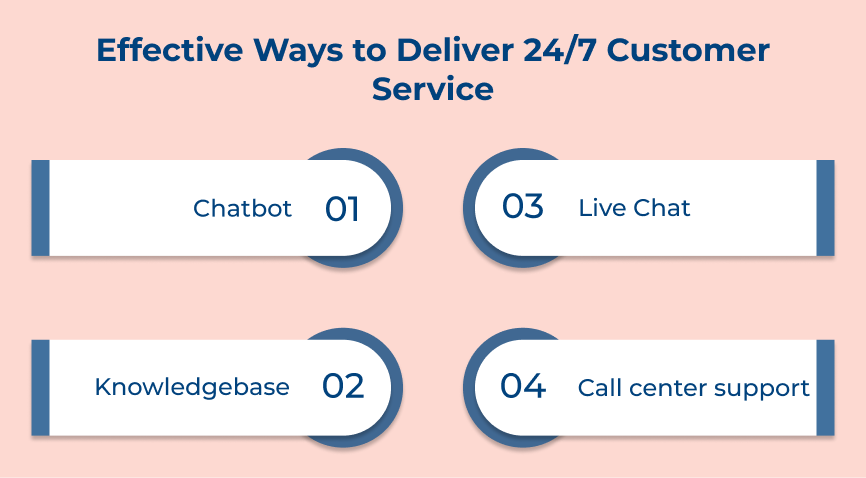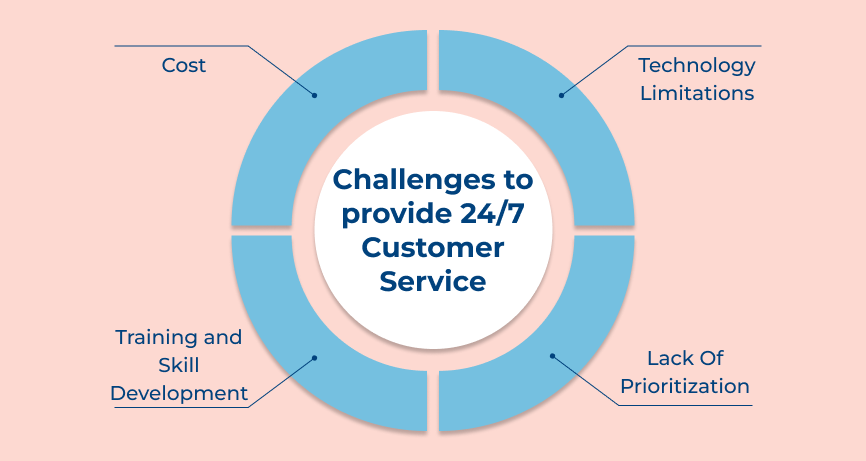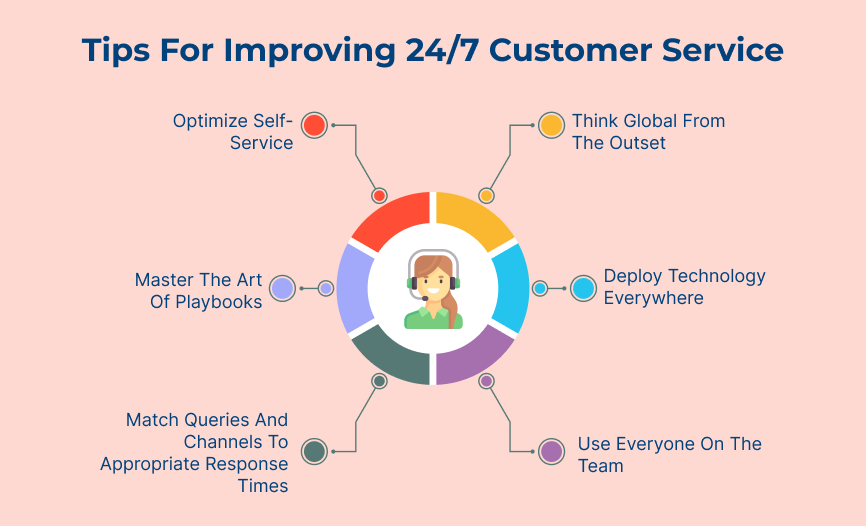1. Implement Knowledge Base
Implementing a knowledge base is a crucial strategy for providing 24/7 customer service. A knowledge base is a centralized repository of information that contains articles, FAQs, tutorials and troubleshooting guides.
The knowledge base serves as a self-service portal for customers to find answers to their questions without having to contact customer support. 91% of customers are willing to try an online information base if it is accessible and matches their necessities.
Best practices:
- Categorize articles clearly so that customers can easily navigate and find the information they need.
- Ensure that articles are up-to-date and accurate to provide customers with the most relevant information.
- Allow customers to rate articles and provide feedback on their usefulness. Use this feedback to continuously improve and optimize the knowledge base for better customer support.
2. Use Of Live Chat Or Chatbot
Providing 24/7 customer service is essential for businesses to meet the needs and expectations of customers. One effective strategy to achieve this is by utilizing live chat or chatbots on the website or social media platforms. Live chat allows customers to engage in real-time conversations with a customer service representative, while chatbots use artificial intelligence to provide automated responses based on predetermined scripts.
The strategy ensures that customers receive immediate assistance and support, regardless of the time of day. The importance of using live chat or chatbots as a 24/7 customer support strategy cannot be overstated. It improves customer satisfaction, increases efficiency in handling customer queries and ultimately leads to higher conversion rates.
Best practices:
- Utilize chat analytics to monitor customer interactions and make improvements to the chat system.
- Train customer service representatives to seamlessly transition from live chat to phone or email support when necessary.
- Implement proactive chat invitations to engage customers who may need assistance but have not initiated a chat themselves.
3. Focus On Helpdesk Support
Providing round-the-clock helpdesk support is crucial for businesses looking to ensure customer satisfaction and maintain a competitive edge. The strategy involves having a dedicated team available 24/7 to address customer queries, troubleshoot issues and provide technical assistance.
The importance of 24/7 helpdesk support cannot be understated. It allows businesses to cater to customers in different time zones, respond promptly to urgent issues and demonstrate a commitment to customer service. The strategy can also help businesses improve customer retention, enhance brand reputation and drive customer loyalty.
Best practices:
- Utilize automated chatbots and self-service options to handle common customer queries outside of business hours, reducing the workload on the support team.
- Implement a ticketing system to track customer issues, ensuring that no query goes unanswered and all issues are resolved on time.
- Train the support team to handle a variety of customer concerns. Provide them with access to a knowledge base to quickly find solutions to common problems, enabling them to provide efficient support around the clock.
4. Outsource Call Center Support
Outsourcing call center support is an effective strategy to provide 24/7 customer service to clients. Utilizing a third-party call center allows businesses to ensure that their customers always have access to support, regardless of the time of day or night. The strategy is crucial for businesses that operate globally and have customers in different time zones. 27% of small businesses rely on outsourcing for their customer service needs.
Providing 24/7 support can lead to increased customer satisfaction, loyalty and ultimately, higher retention rates. Let’s take an example of a technology company that offers software solutions to clients worldwide. It may choose to outsource its call center support to ensure that technical issues can be addressed promptly at any hour of the day.
Best practices:
- Choose a reputable call center with a track record of excellence in customer service. Look for a provider that offers multilingual support, if needed.
- Provide thorough training and clear guidelines to the call center staff to ensure they are well-equipped to represent the brand effectively.
- Regularly monitor and evaluate the performance of the outsourced call center to ensure that customer service standards are being met consistently.
5. Use Community Forums
Community forums are an effective strategy to provide 24/7 customer service. These forums allow customers to ask questions, seek advice and share experiences with other customers or company representatives at any time of the day. The community forums provide a platform for customers to support each other and find solutions to their problems without having to wait for traditional customer service hours.
Community forums can lead to increased customer satisfaction and loyalty as they feel valued by the brand. A use case for community forums would be a tech company creating a forum where users can troubleshoot issues, share tips and provide feedback on products. It not only reduces the workload for the customer service team but also promotes a sense of community among users.
Best practices:
- Actively monitor and engage in discussions to provide accurate answers to customer queries.
- Encourage user participation by rewarding helpful contributions or hosting exclusive events or promotions for forum members.
- Use the feedback gathered from the forums to improve products or services and address common pain points experienced by customers.
6. Focus Of Omni Channel Communication
The focus of omni-channel communication is to provide seamless and consistent customer service across multiple channels such as email, social media, phone and live chat. The strategy ensures that customers can interact with a company at any time and receive the same level of service, regardless of the platform they choose to use.
Omni-channel communication is crucial as customers expect immediate responses and personalized experiences. Implementing this strategy allows businesses to increase customer satisfaction, loyalty and retention rates. It also allows companies to gather valuable data on customer preferences and behaviors, which can be used to improve their products or services.
Best practices:
- Ensure consistency in messaging and branding across all channels to maintain a cohesive customer experience.
- Use data analytics to track customer interactions and preferences, allowing for more personalized communication.
- Train customer service representatives to be knowledgeable about all channels and provide effective support.
Challenges That Keep Companies From Offering 24/7 Customer Service.
Below are the key challenges that prevent businesses from operating on a 24/7 basis and explore potential solutions to overcome these persistent issues.






